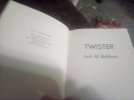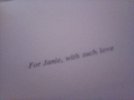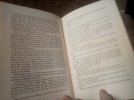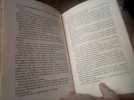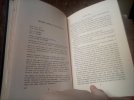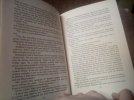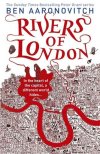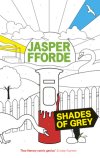Currently, I am working through "Moby Dick" by Herman Melville. I tried reading this previously but it frustrated me how detailed the descriptions are and how overall slow this book feels but a friend of mine recently recommended it strongly so I have given it a second try.
It's rare I give up on a book, but I just couldn't get on with Moby Dick. Like you say, it's just too slow. It's incredible in terms of a kind of day by day description of the times - I can understand why it's such an important book, but... So boring

I tend to bounce around genres and "talent". I like nice, easy reads, and the occasional thing that is unusual just to keep things fresh.
I've been trying "classic sci-fi" over the last 2 years, which is something I've never really liked. Also, Game of Thrones has opened up a world of near historical fantasy.
Let's see for this year:
"Serious":
Midnight's Children - hard going, but beautifully written.
A Farewell to Arms - really weird prose, bit all over the place. I think I'm missing something

The Bonfire of the Vanities. This took me ages to read. Political and lawyer dramas aren't really my thing. Not a single character is likable either. They're all real people (which is why I guess it's so highly regarded). It was clever though, and turns into a real "what will happen". I hated what happened

The Love Song of Miss Queenie Hennessy (Rachel Joyce): I loved "The Unexpected Journey of Harold Fry", so I had to read this, which tells the same tale, from the other side. It was a bit obvious, and tried too hard to tug on your heartstrings, but it never felt anything other than pragmatic. Not as good as the first book, but it scratched an itch.
Fantasy:
Neverwhere - I'm slowly becoming a Neil Gaiman fan (it's taken about 15 years). Really enjoyed this.
The Wolf and its sequel The Spider (Leo Carew) - Told from the view of a giant race living in Scotland, against the humans who live in the South. Probably an allegory or something, but it's good blood, swords and betrayal type of stuff.
Nation (Terry Patchett): I never really liked Pratchett. I didn't think he deserved to be the "cultural icon" he was in the early 90's. His writing was messy and unoriginal (His first many books are just Shakespeare in a Lord of the Rings type setting). However, as his work goes on, he becomes really good. The satire is biting, and he create characters with real heart and personality, rather than just "amusing shadows" of someone else. Nation is not his typical work, and it's excellent. It's still a bit messy here and there, but its captivating and a wonderfully crafter little tale. It's meant for "Young Adults", so it's lite, but still worth it.
The Blade Itself (Joe Abercrombie) - A pale Game of Thrones imitation, that works because it scales the story down to a handful of meaningful characters, that don't get lost in a plot so huge, it's overwhelming even for the author! Well written, and good fun.
Sci-Fi:
Star Wars: Thrawn Ascendancy - the last book of the Thrawn prequels. They've been... Okay I guess. I love Thrawn, but so much this 9th or something book I've read about him.
After Atlas (Emma Newman): Odd Cyberpunkish, English manor murder mystery. I really enjoyed her first book in this series, and it's a great meld of sci-fi and real people, with real problems.
Ringworld (Larry Niven): The book that Halo gets its idea from. Also, lots of things Douglas Adams reused in Hitch-hikers. It's got some great concepts, but the story just gets lost. Very typical 60/70s male crap as well - the women are there to serve the men as they smoke their pipes kind of stuff

Foundation (Asimov): Kind of really enjoyed it. Again, it's dated, but still huge in scope. It's amazing that sci-fi has changed so little. Asimov set the ground rules and they're still pretty much intact.





